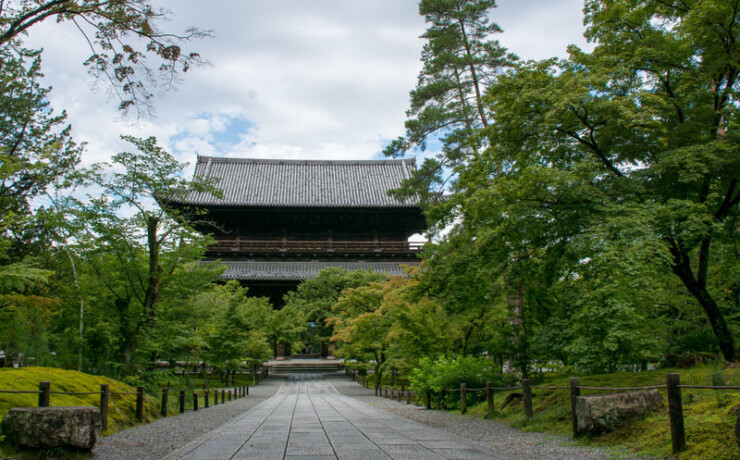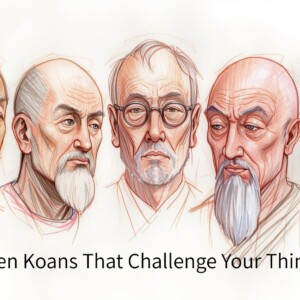
Enlightenment in Zen: A Process, Not a Goal
When people hear the word enlightenment, they often imagine a dramatic spiritual awakening—a sudden, final destination where all problems vanish. But in Zen, enlightenment is not a fixed state or grand achievement. It is a process, not a goal. It is something that unfolds moment by moment, through direct experience, awareness, and the quiet simplicity of daily life.
This article explores how enlightenment in Zen differs from common conceptions, and why understanding it as a process can transform not only your practice but your entire way of being.
What Is Enlightenment in Zen?
In Japanese Zen, the word often used for enlightenment is satori (悟り), meaning “understanding” or “awakening.” But unlike some traditions that treat enlightenment as a supernatural or distant goal, Zen sees it as awakening to the present moment—again and again.
“Before enlightenment, chop wood, carry water.
After enlightenment, chop wood, carry water.” — Zen Proverb
This famous quote reminds us that nothing magical happens. Life remains the same on the surface. What changes is your awareness—your relationship to reality.
1. Enlightenment Is Not Escaping the World
Many seekers chase enlightenment as a way to avoid suffering, emotions, or the chaos of life. But Zen teaches that true awakening comes through life, not around it.
Sitting in Zazen, washing dishes, feeling frustration—each moment is part of the path. You don’t need to leave the world behind. You need only to be fully present within it.
2. There Is No Final Destination
In Zen, there is no finish line. Enlightenment is not an endpoint but a continuous unfolding. Even great Zen masters are said to keep practicing—to keep waking up from illusion and returning to truth.
“Enlightenment is intimacy with all things.” — Dōgen Zenji
Every moment offers the chance to reconnect. To wake up. To begin again.
3. The Process Is the Teaching
Zen emphasizes practice over theory. Enlightenment is not found in books or concepts—it is discovered in the breath, in silence, in presence.
Daily practices that support the process:
-
Zazen (seated meditation): Sit without chasing thoughts or resisting emotions.
-
Mindful action: Eat, walk, and work with full attention.
-
Koan reflection: Contemplate paradoxes that challenge logical thinking.
-
Letting go: Drop attachments to self, success, and spiritual “progress.”
The process itself is the realization. There’s nowhere to go but here.
4. Small Moments Matter
Don’t wait for fireworks. Enlightenment often comes in quiet, ordinary moments:
-
The breath you didn’t rush
-
The anger you didn’t feed
-
The tear you allowed to fall without judgment
-
The silence you met without fear
Each of these is a doorway into deeper clarity.
5. You Are Already Whole
Perhaps the most radical teaching in Zen is that you are not broken. You are not lacking. Enlightenment is not something you gain—it is something you realize was already there.
“You are perfect just as you are—and you could use a little improvement.” — Shunryu Suzuki
This paradox reminds us that we practice not to become someone else, but to return to our original nature.
Final Thought: Walk the Path, Don’t Chase the Goal
Enlightenment in Zen is not a trophy to earn or a secret to unlock. It is a way of being—open, aware, and grounded in the present moment. By releasing the need to “arrive,” you begin to live more fully, more honestly, and more freely.
So sit down. Breathe. Let go of striving.
And realize that enlightenment is not something to get—
It is something to live.
🌿 Want to go deeper into Zen and mindful living?
Explore ZEN for LIFE — a gentle guide to bringing presence, simplicity, and calm into your everyday routine.
Now available on Kindle.
#ZENforLIFE #MindfulLiving #EverydayZen










この記事へのコメントはありません。